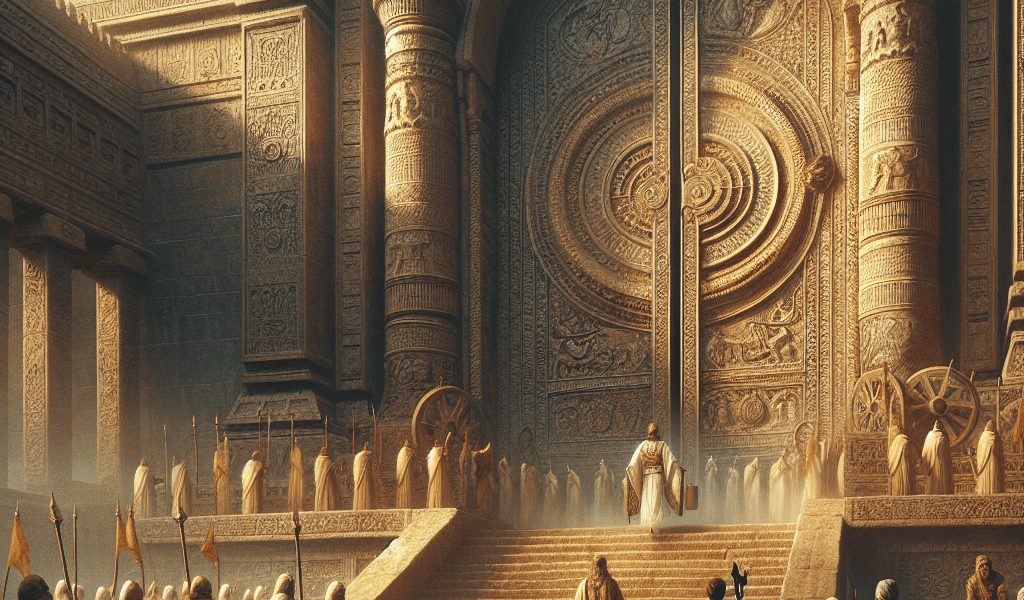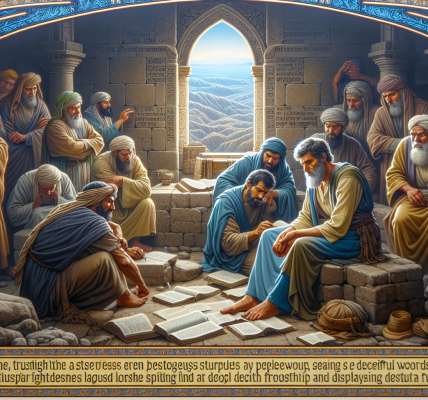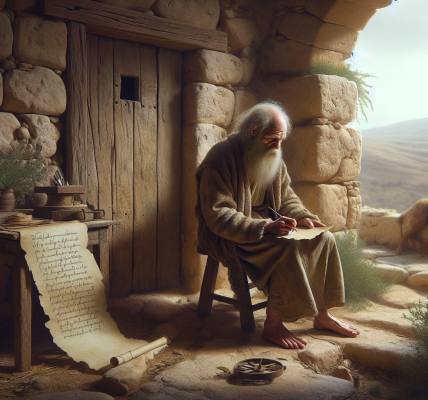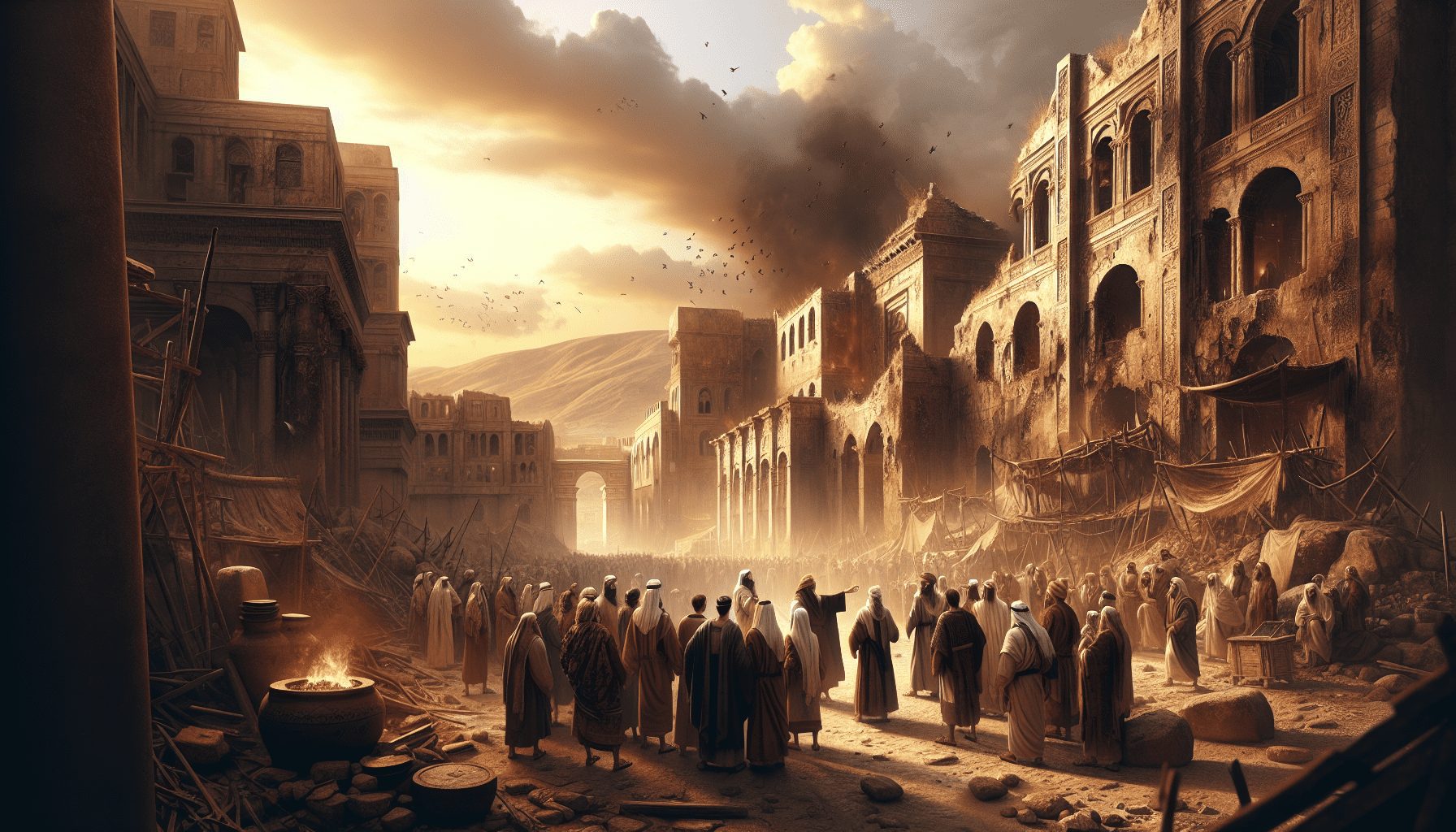Once upon a time, in the far distant past, when the laws of worship were meticulously prescribed by the Lord Jehovah, a tale of dedication and devotion unfolded.
The Lord Jehovah had decreed that the gate of the inner court that beheld the rising sun should remain shut on the six working days. But on the Sabbath and on the day of the new moon, a divine rhythm of opening that was commanded to be followed. The sight of the gate prying open on these blessed days was a spectacle to behold, inviting awe and reverence.
The prince, representing the people, was ordained to enter by the porch of the gate, his approach marked by anticipation and humility. By the post of the gate, as he stood solemnly, the priests prepared his burnt-offering and peace-offering. And there, at the threshold of the grand gate, under the watchful eyes of the Lord Jehovah, the prince offered his worship, and he exited, leaving the gate open until the evening, a silent witness to the day’s sacred proceedings.
The worshippers thronged at the door of the gate, paying homage to Jehovah on Sabbaths and new moons, their fervor and faith invigorating the holy place. Each time, the prince would lead by example, bringing six lambs and a ram, all without blemish, as Sabbath’s burnt-offering. An offering of ephah and oil accompanied, proportioned according to his means.
The day of the new moon evoked a different ritual. A young bullock without blemish replaced the ram of the Sabbath. Six lambs and the ritualistic offering of ephah for the bullock and the ram, and oil was done. The need to maintain the purity and perfection in offerings was steadfast, echoing the divine call for unblemished faith.
When the appointed feasts arrived, the people of the land convened before Jehovah. Interestingly, the ones who entered by the north gate had to exit to the south, and the ones who entered to the south exited to the north. This constant flux symbolized the enduring movement of life and faith.
Amidst this, the prince mingled with the people, entering and exiting amidst them, symbolizing that all stood equal before Jehovah. In the eyes of the Lord, the prince and the people were one, united by their shared reverence.
And then came the time of freewill offering, when the prince decided to extend his devotion to Jehovah beyond the prescribed ceremonies. On these occasions, the eastern gate was opened just for him to prepare his offering. Once he completed his ritual and left, the gate was closed, marking an end to a personal and profound communion with Jehovah.
Every day, a lamb, a year old and without blemish, was offered as a burnt-offering to Jehovah. A meal-offering, finely measured, was prepared each morning. This daily ritual signified the constancy of devotion, a perpetual ordinance that affirmed commitment to Jehovah every sunrise.
The Lord Jehovah also provided for inheritance, stating if the prince gifts anything to his sons, it would be their possession by inheritance. But if he gifts his servant, it becomes his only until the year of liberty; then it returns to the prince. Also, the prince was not allowed to dispossess people from their inheritance, confirming Jehovah’s commitment to fairness and justice.
In a walk around the sacred premises, the attention was drawn to the sacred north-facing chambers for the priests. There was a place on the westward rear end which served an important purpose. This was where the priests boiled the trespass-offering and the sin-offering and baked the meal-offering, keeping them away from the outer court to maintain sanctity.
Moving further along, the outer court was designed with four corners. Each corner was a court in itself, surrounded by a wall and equipped with boiling-places situated under the walls. These boiling-houses provided the setup where the ministers prepared the sacrifices of the people, completing the circle of reverence and dedication towards Jehovah.
And so, these ordinances prescribed by the Lord Jehovah were carried out with fervent zeal, reflecting the sacred bond between Jehovah and His people, a bond that stood steadfast on the foundations of faith, reverence, fairness, and ceaseless devotion.




